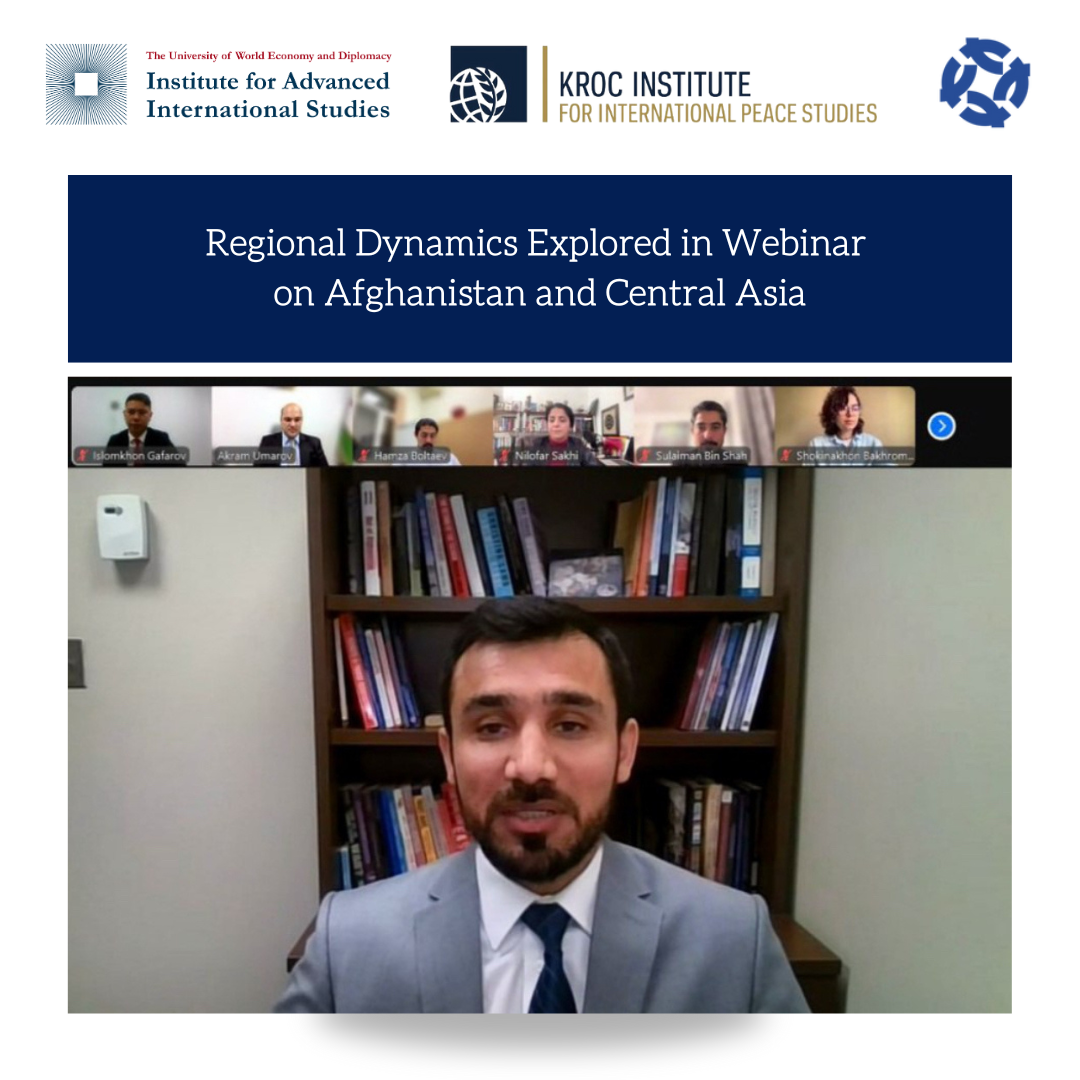
Yesterday, the Kroc Institute for International Peace Studies at the University of Notre Dame (Indiana, United States), along with the Institute for Advanced International Studies (IAIS), and Andiana Foundation (Washington DC, United States), hosted a webinar titled “Afghanistan and Central Asia: Taliban Rule, Economic Projects, and Regional Stability”. This insightful event convened leading experts, policymakers, and scholars to examine the evolving dynamics in Afghanistan under Taliban governance and their implications for regional stability and economic collaboration.
The webinar, moderated by Dr. Akram Umarov, Deputy Director of IAIS, featured prominent voices in the field. The discussion commenced with an exploration of Afghanistan’s regional economic engagements following the Taliban’s return to power in 2021. Mr. Sulaiman Bin Shah, an economic analyst and former Deputy Minister of Commerce for Afghanistan, provided an insightful analysis of how neighbouring countries, including Uzbekistan, have adapted to this new reality, highlighting both challenges and opportunities in cross-border trade and infrastructure projects.
Uzbekistan’s strategic role was further elaborated by the Head of the Centre for Afghanistan and South Asian Studies at IAIS Mr. Hamza Boltaev, who outlined the key economic initiatives undertaken by Tashkent in Afghanistan, emphasising the careful balance between managing risks and pursuing long-term goals. He detailed several high-profile infrastructure and trade projects, underscoring their importance for regional connectivity and economic integration.
Dr. Nilofar Sakhi, Founder and President of the Andiana Foundation, brought attention to the broader impact of regional economic projects on governance and stability under Taliban rule. She posed critical questions about the inclusivity of these initiatives, particularly in terms of ensuring that Afghan women benefit from economic progress. Dr. Sakhi’s remarks resonated with participants, highlighting the tension between pragmatic economic interests and social concerns in the region.
The geopolitical dimension of Afghanistan’s evolving relationships with major powers was addressed by Mr. Islomkhon Gafarov, Senior Research Fellow at IAIS. He analysed the implications of China and Russia’s engagement with the Taliban regime, exploring how these partnerships influence the security and stability of Central Asia.
A lively Q&A session followed, allowing attendees to delve deeper into these complex issues. The session reflected the keen interest of participants in understanding Afghanistan’s role as a regional nexus of both opportunity and challenge.
The webinar concluded with remarks by Dr. Akram Umarov, who summarised the key takeaways and underscored the importance of sustained dialogue and research. He also emphasised the necessity of regional cooperation to navigate the intricate dynamics of stability, economic development, and geopolitical strategy in Afghanistan and Central Asia.
IAIS reaffirmed its commitment to fostering meaningful discussions on critical international issues and announced plans to organise further events dedicated to examining Afghanistan’s integration into the regional and global landscape.